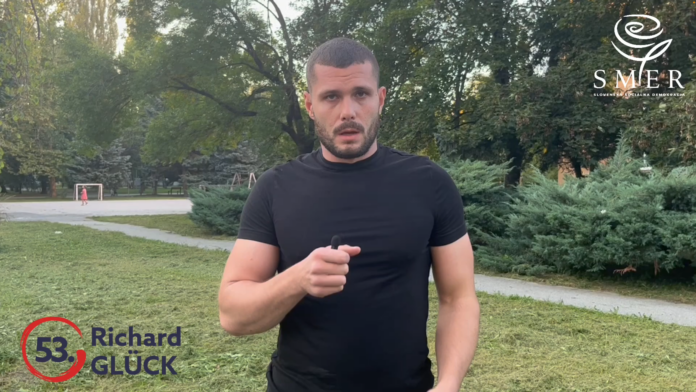President Peter Pellegrini has signed a controversial law reducing housing subsidies for Ukrainian refugees from 120 to 60 days. Spearheaded by the chair of the National Council’s Defence and Security Committee, the amendment has been criticised by opposition MPs as politically motivated and inhumane. The law reflects pre-election rhetoric blaming refugees for economic challenges and raises questions about Slovakia’s historical responsibility to protect vulnerable populations in the wake of its Holocaust legacy.
Richard Glück, chair of the National Council’s Defence and Security Committee, spearheaded the amendment that will take effect in March 2025. While the government framed the measure as fiscally necessary to ease public financial strain, opposition MPs criticised it as politically motivated and inhumane.
Glück’s pre-election rhetoric underscores the political dimensions of this policy. In a campaign video, he alleged that Ukrainian refugees exploit Slovakia’s housing subsidies to manipulate the rental market and undercut Slovak wages. He argued that the previous government prioritised Ukrainian refugees over Slovak citizens, declaring: “After 30 September, we must care for Slovak citizens first and only then for others.”
This framing appeals to economic grievances and nationalist sentiment, presenting refugees as competitors in housing and labour markets. Critics argue this rhetoric risks fostering social divisions and scapegoating vulnerable populations for broader economic challenges.
Lessons from the Holocaust: A Moral Responsibility
The decision also draws attention to Slovakia’s historical legacy. During the Holocaust, many Slovak leaders collaborated in policies of exclusion, a dark chapter that shaped the country’s moral responsibilities. Reducing support for refugees fleeing war contrasts sharply with the lessons of this history. Slovakia’s tragic past serves as a reminder of the consequences of indifference to human suffering and the importance of maintaining solidarity with vulnerable groups.
Internationally, the policy undermines Slovakia’s reputation as a European partner committed to humanitarian values. It risks weakening solidarity with Ukraine amidst ongoing Russian aggression and could embolden Russian disinformation efforts that exploit divisions within the EU. Domestically, the move reinforces populist narratives that prioritise short-term political gains over long-term cohesion and compassion.
By targeting a vulnerable group for political purposes, the government risks aligning with exclusionary trends rather than embracing its obligations under international law and its historical legacy of resisting oppression. Slovakia’s identity as a democratic nation rooted in solidarity requires policies that reflect compassion, not division.
Author: Victor Breiner








